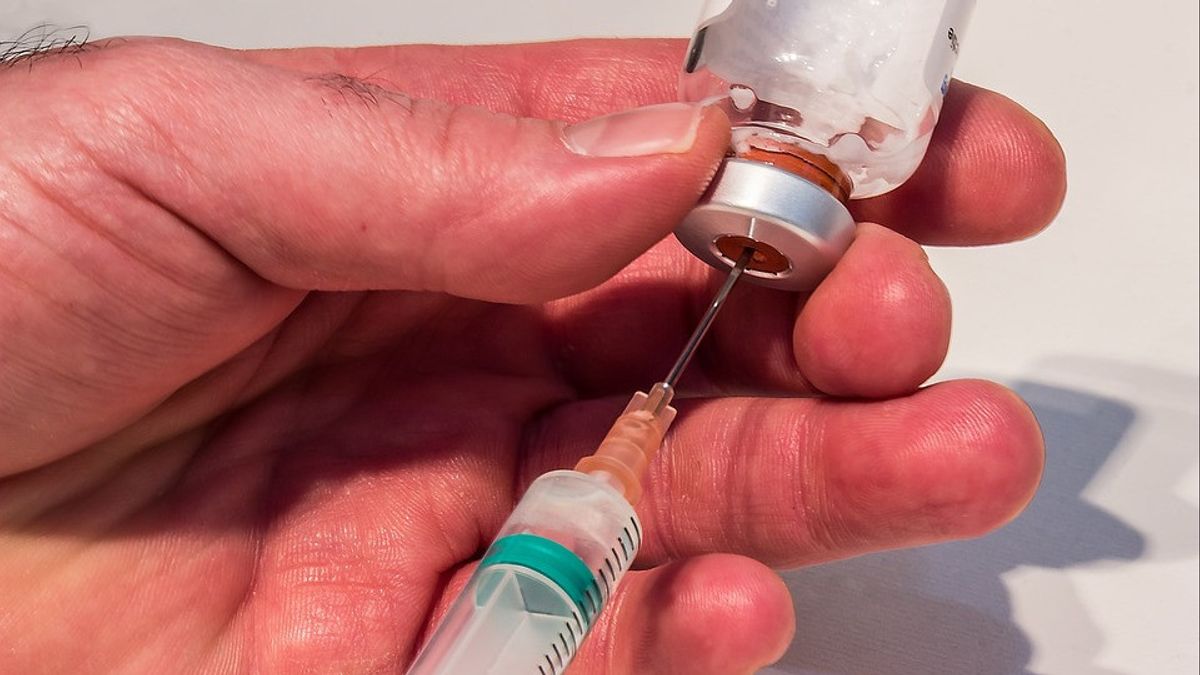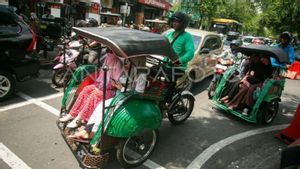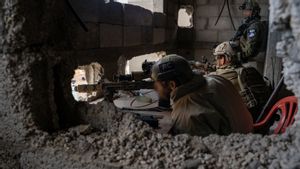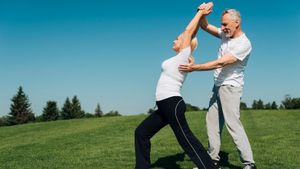JAKARTA - Member of Commission IX of the Indonesian House of Representatives, Saleh Partaonan Daulay, questioned the reasons for the COVID-19 vaccine collaboration between Bio Farma and a pharmaceutical company from China, Sinovac, to be tested in Bandung, West Java.
According to him, the COVID-19 vaccine should be tested first in its country of origin and then sold in Indonesia.
"This is going to be tested on humans, there are 1,620 that will be tested. The question is why you have to go to Bandung. Why can't it be done in China alone," said Saleh in a discussion program broadcast online on YouTube, Sunday, July 26.
According to him, this is important to explain to the public. In addition to ensuring the safety of the 1,620 volunteers who will be injected with the vaccine, this is important so that the public does not perceive these volunteers as guinea pigs for the vaccine.
"So also explain why it has to be in Bandung. Don't let the public's perception later, this is China coming to make us guinea pigs," he said.
In addition, this National Mandate Party (PAN) politician questioned why the Indonesian government chose a vaccine from the Sinovac company to be clinically tested and immediately produced. In fact, he said, Indonesia is currently developing its own vaccine which does not cooperate with any party.
"We have to explain this because the goods that come from China must be able to improve the welfare of our people. All things that come from China, not just vaccines. So this is a question, whether this is really useful or just as a market," he said.
Responding to the statement, Bio Farma Corporate Secretary, Bambang Heriyanto explained Sinovac's ability to research the vaccine quickly became the reason the government chose to cooperate with the pharmaceutical company.
"In the world there are 140 institutions that carry out research on the COVID-19 vaccine but only a few, even under 10 fingers, have entered phase three, one of which is Sinovac," said Bambang.
According to him, Indonesia currently has several scenarios related to vaccine development to fight the COVID-19 pandemic.
The first is to collaborate with companies that are experts in their fields. This cooperation, continued Bambang, is useful for implementing technology transfer.
"So in the short term we try to get access to the technology (in collaboration with Sinovac, ed). So we don't just buy vaccines, we also transfer technology," he said.
Meanwhile, the second scenario is to carry out your own research without collaborating with other parties. It's just that, for this second scenario it will take longer.
Given, the vaccine research consortium led by the Eikjman Molecular Institute is only expected to receive vaccine candidates in 2021.
"Candidates, not vaccines. Candidates are still far from the clinical trial stage and the stages are like that. ... The original RI vaccine is complete by the end of 2020. So the fastest is Sinovac, Sinovam, and others," he said.
Furthermore, regarding the reasons for clinical trials being carried out in Bandung, West Java, Bambang explained that clinical trials are often carried out outside the countries where the vaccine is made.
He gave an example, Indonesia had conducted clinical trials in several countries such as Kenya, Belgium and Panama. "And there is no European who declared them guinea pigs," said Bambang.
Moreover, he continued, the vaccine, the result of the collaboration between Bio Farma and Sinovac, is already running the first and second phases in China.
The first and second phases, said Bambang, are phases related to the safety of vaccines in the third phase or clinical trials.
In line with Bambang, University of Indonesia (UI) Epidemiologist Pandu Riono also stated that the safety of the vaccine was tested in the first and second phases.
"So if it does not pass to phase one and phase two, it is impossible to pass to the third phase even though it is in urgent conditions," explained Pandu.
In the third phase, said Pandu, even if there were side effects experienced by volunteers that were not present in the first and second phases, the testing could be stopped.
"For example, someone died. So there must be an independent board to monitor side effects. Unpad team should be formed (FK Padjajaran University, red). So this team can say that the research will stop if there are side effects," he concluded.
The English, Chinese, Japanese, Arabic, and French versions are automatically generated by the AI. So there may still be inaccuracies in translating, please always see Indonesian as our main language. (system supported by DigitalSiber.id)













